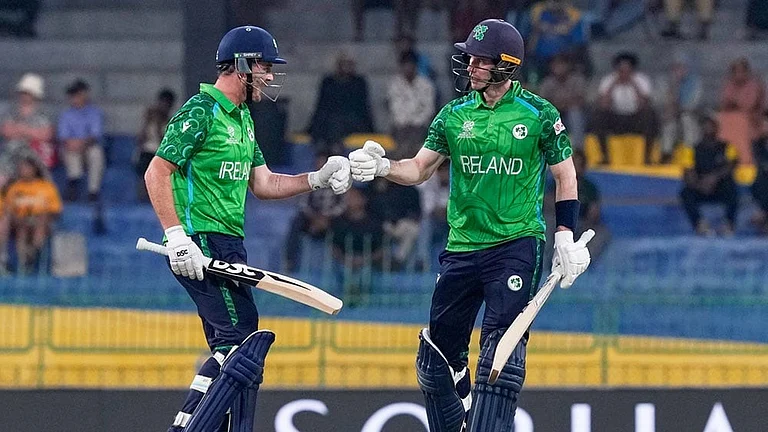As a statutory body tasked with ensuring the security of women in the national capital, the Delhi Commission for Women (DCW) is working towards a scenario where no brothel should have minors and no woman must be trafficked. Swati Maliwal, who took charge of the organisation in end-July 2015, speaks to Anoo Bhuyan on how she is striving to catalyse the mission despite odds.
Delhi’s GB Road red-light area was one of the first you chose to work on after taking charge of the DCW. Why?
As an activist, I have been visiting GB Road and have seen the pain and the immense exploitation of its women. Ending it all and rehabilitating them became my priority on joining office.
How does DCW plan to end prostitution? Is the demolition of the brothels your main agenda?
It’s two-pronged: end prostitution and rehabilitate the victims. We have written many letters to the government to re-energise the state anti-trafficking committee, to put in place a scheme for rehabilitation. There is no way a red-light area can function without active connivance of politicians and authorities. It’s an industry worth thousands of crores (of rupees).
Which bodies need to come together to tackle this?
The work has to be done by the police and the MCD, and to some extent, Delhi government. The commission is a recommendatory body; we can act as facilitator and catalyst and put pressure, but we can’t ourselves shut these brothels.
What should each of these bodies do?
No brothel should have minors, no woman must be trafficked. Police need to find out the real kingpins. The DCW’s pressure prompted the police for the first time to identify a brothel-owner last year. MCD needs to get active on unauthorised structures. They will proactively demolish an extra construction on one’s terrace, but they should have demolished these years ago. The third role is of the government of Delhi and the centre. They need to come together to ensure rehabilitation.
There’s a police station close to GB Road, yet you say the cops are not proactive enough...
We have tried to energise the system without pointing fingers. Our work is to repeatedly question authorities. I have tried to form a committee and bring all stakeholders together, to sensitise them. Despite our meetings, only recently did officials see the condition of GB Road—for the first time. I’m confident if Delhi police want, they can finish it, given their resources and aptitude.
What is plaguing the police? Do they not have the capacity or isn’t there support?
Police need better intelligence. On GB Road, it’s always the police from other states that rescue. The commission has faced direct attack on this. There have been two false FIRs failed against me. There have been three audits of the Commission despite ours being a small body with an annual budget of Rs 9 crore, of which we have spent only Rs 3.5 cr. There is an effort to render us completely dependent.
The DCW wants every woman to be given some kind of ex gratia on the spot, besides alternative employment. A victim’s compensation scheme entitles women to Rs 3 lakh, but the Delhi government is moving to increase this to Rs 7-12 lakh, on the DCW’s recommendation. It’s a notification pending with the LG since October 2015. Rehabilitation should entail job. So many companies want to do CSR. There’s a National Skill Development Council of India. The Delhi government can seek grant from the Nirbhaya fund.
The Delhi government must create a rehabilitation scheme and seek the support of the centre, the skill council and companies to ensure every rescued woman leads a decent life. The Delhi government and the Centre need to come together and work in tandem.
What has been the uptake of the compensation for women in Delhi?
Not too many women are coming forward. They are scared of police station. Their preconceived ideas are sometimes true. The women’s shelter home is also in a very bad condition.
If nothing happens in time on rehabilitation, what’re the women supposed to do?
We are putting pressure on demolition and rehabilitation. We won’t rest until these objectives are met. We are working on acid attacks. We have set up 181 women’s helpline number, which received 3.16 lakh calls in six months. We have handled 12,000 cases, made 7,500 visits. We are the only commission that works on Saturdays, too.
Now that the lieutenant general of Delhi has changed, will things move faster?
Despite the Commission writing to him several times over 18 months, the previous L-G (Najeeb Jung) didn’t hold a single meeting on women’s safety. Recently the High Court sought his explanation. I hope things should change with the new L-G.
You have been saying that politicians are involved in this industry. How?
We clearly know that this business is being run in connivance with at least two senior politicians. They run the brothels, though others own the buildings. We are getting into it. This explains the attack on the commission.
What is the state of affairs at Delhi’s Nari Niketan, which would technically be the haven for any woman who escapes or is rescued?
All in a shambles. It houses about 1,500 women, many of whom have been abandoned there for years. They receive inadequate physical and mental attention.
Parliament was told in May last year that 22,000 children went missing in the last three years in Delhi.
There is a clear failure of the police here. Every time there is a rescue in Delhi, it is done by police from other states. It is obvious that the police in Delhi are not active on this issue.”

























